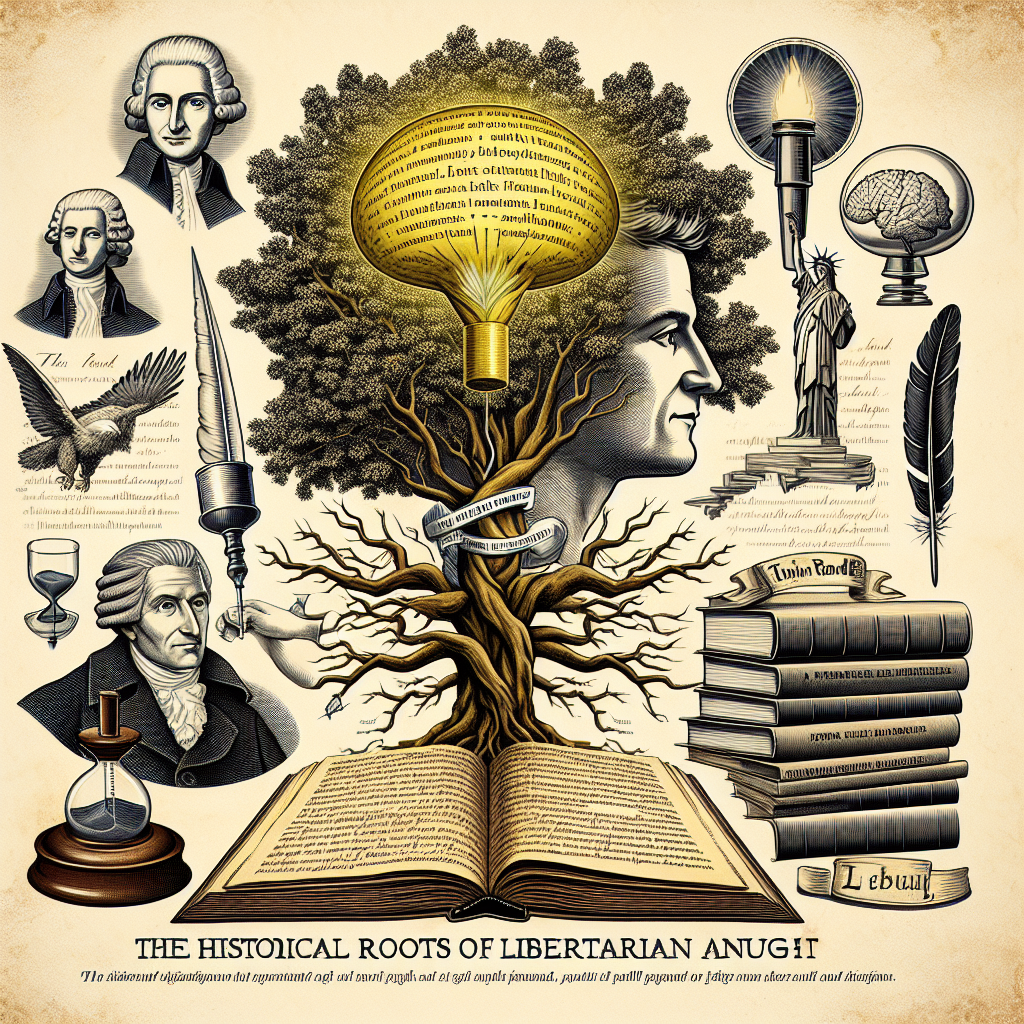The Historical Roots of Libertarian Thought: From Locke to Rand
Libertarianism, a political philosophy that champions individual liberty, free markets, and minimal government intervention, has deep historical roots. From Enlightenment thinkers like John Locke to 20th-century theorists such as Ayn Rand, the evolution of libertarian thought reflects a continuous struggle for personal freedom. In this article, we will explore these historical influences to uncover how they shaped modern libertarian principles.
The Enlightenment Era: Foundations of Personal Liberty
John Locke: The Father of Liberalism
John Locke (1632-1704) is often regarded as the progenitor of liberal thought. His seminal work, "Two Treatises of Government," posits that individuals possess natural rights to life, liberty, and property. Locke argued that the primary purpose of government should be to protect these rights, establishing a framework for consent and limited government that would later become central to libertarian ideology.
The Social Contract
Locke introduced the concept of the social contract, which stipulates that legitimate government authority arises from the agreement of the governed. This idea directly influenced the Founding Fathers of the United States and remains a vital element in libertarian discourse, emphasizing that state power derives from the consent of the individuals it governs.
The Influence of Classical Liberalism
Adam Smith and Economic Freedom
While Locke laid the groundwork for political liberty, Adam Smith (1723-1790) expanded on economic freedom in his seminal work, "The Wealth of Nations." Promoting the idea of the "invisible hand," Smith argued that free markets lead to prosperity and more efficient allocation of resources. His advocacy for minimal government interference in economic matters became a cornerstone of classical liberalism and a significant influence on libertarian thought.
The Utilitarian Turn: Jeremy Bentham and John Stuart Mill
The 19th century saw the rise of utilitarianism, as philosophers like Jeremy Bentham and John Stuart Mill contributed to the discourse on personal and collective well-being. Mill’s "On Liberty" championed individual autonomy and explored the limits of state power over the individual—a theme that resonates strongly within libertarian ideology.
The 20th Century: From Hayek to Rand
Friedrich Hayek: Economy and Freedom
Friedrich Hayek (1899-1992) was a key figure in the development of libertarian economics. In "The Road to Serfdom," Hayek warned against the dangers of government control over the economy, arguing that central planning invariably leads to tyranny. His insights into the relationship between economic freedom and personal liberty have had a lasting impact on libertarian economics.
Ayn Rand: Individualism and Objectivism
Ayn Rand (1905-1982) took libertarian thought in a new direction with her philosophy of Objectivism. In novels like "Atlas Shrugged" and "The Fountainhead," Rand advocated for rational self-interest, individualism, and capitalism. She emphasized that the pursuit of one’s own happiness is moral, critiquing collectivism and altruism as harmful to personal freedom. Rand’s passionate defense of liberty has inspired countless activists and thinkers within the libertarian movement.
Contemporary Libertarianism: A Diverse Landscape
The Libertarian Party and Modern Movements
The establishment of the Libertarian Party in 1971 marked a formal step towards political representation for libertarians in the United States. The party’s platform emphasizes civil liberties, non-interventionist foreign policy, and free-market economics, reflecting the foundational ideas laid down by Locke, Smith, Hayek, and Rand. Today, libertarianism is a vibrant and diverse movement encompassing various factions, from classical liberals to anarcho-capitalists, each emphasizing different aspects of individual liberty and minimal government.
The Digital Age and Libertarian Advocacy
In recent years, the digital landscape has transformed how libertarians communicate their ideals. Social media platforms, podcasts, and online forums have provided new avenues for spreading libertarian ideas and mobilizing support. The rise of the cryptocurrency movement, which embodies many libertarian principles of decentralization and financial freedom, signals a new chapter in the ongoing struggle for personal liberty.
Conclusion: The Enduring Legacy of Libertarian Thought
The historical roots of libertarian thought—spanning from John Locke’s emphasis on natural rights to Ayn Rand’s passionate advocacy for individualism—underscore a continuous pursuit of personal freedom throughout history. Today, as political and economic challenges persist, the principles established by these thinkers continue to inspire and inform a growing movement dedicated to defending liberty in all its forms. Understanding this historical lineage enriches our comprehension of contemporary libertarianism and the ongoing quest for a more free and just society.
Share this content:












Post Comment